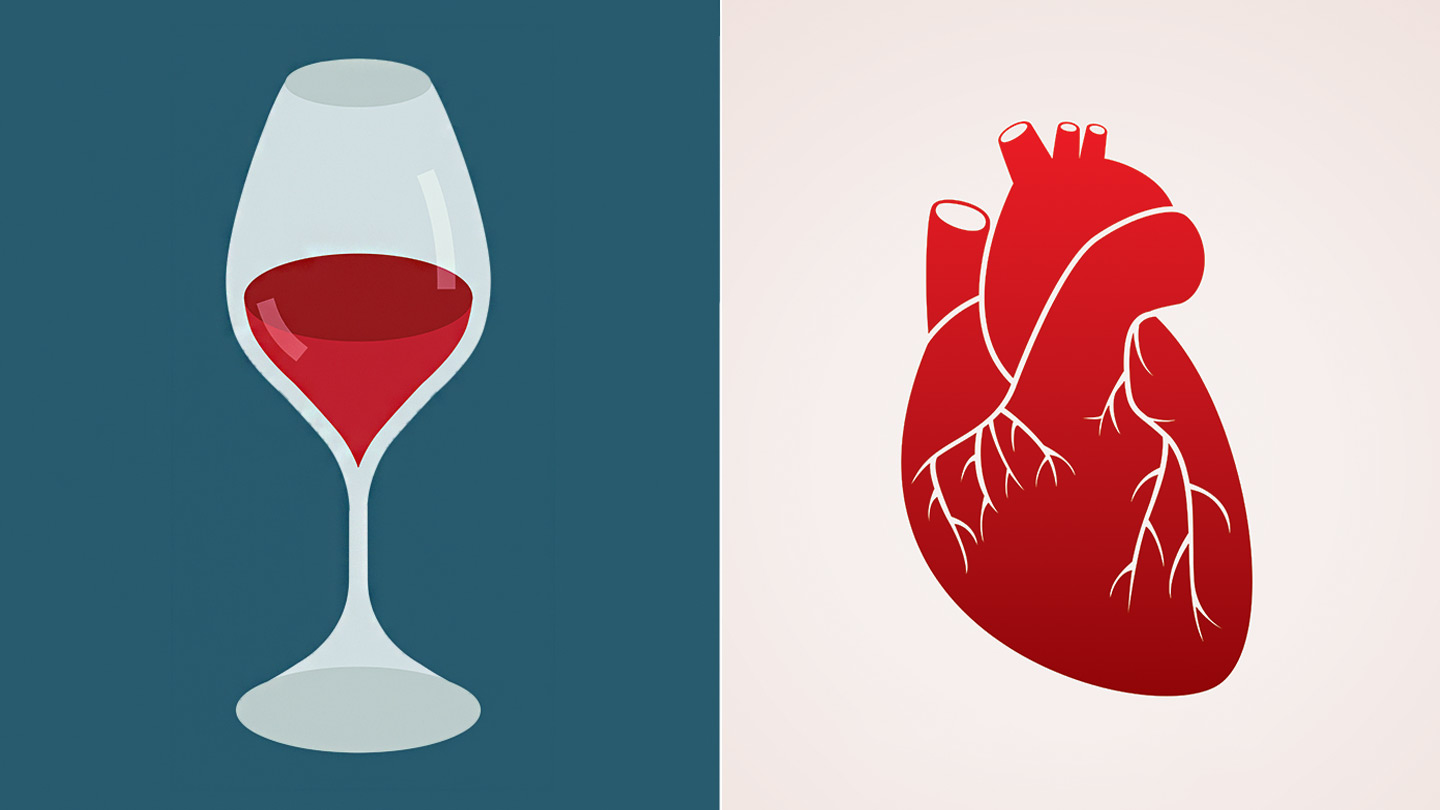Moderate drinking may benefit heart health for some by raising HDL (good) cholesterol levels and helping avert blood clots.
What’s your poison? At the right serving size, alcohol may not be poison at all. While red wine is most often tied to heart health, other types of alcohol can provide the same benefits.
The most well-documented health benefit of alcohol is the way it affects your cholesterol levels, specifically raising your HDL (“good”) cholesterol, say Steven Nissen, MD, and Marc Gillinov, MD, heart specialists at the Cleveland Clinic in Ohio and authors of HEART 411: The Only Guide to Heart Health You’ll Ever Need.
Moderate Drinking May Bring Health Benefits
Dr. Nissen and Dr. Gillinov explain that moderate alcohol consumption, defined as one drink per day for women and two drinks per day for men, can raise HDL cholesterol by roughly 12 percent — an increase with effects similar to participating in an aerobic exercise program.
The American Heart Association's "Wine and Your Heart," a classic review of more than 60 clinical studies published in January 2001 in Circulation, suggested that moderate alcohol use cuts down on coronary heart disease. In addition, the studies showed that drinking more than a moderate amount is linked to higher mortality rates, so moderation is critical if you want to enjoy the potential health benefits of alcohol.
Is a drink after work just as good for your heart as a trip to the gym or a vigorous walk? Maybe not exactly the same, but you can consider alcohol part of a heart-healthy lifestyle, Nissen and Gillinov say.
Alcohol also blocks the oxidation of LDL ("bad") cholesterol, helping to prevent fatty plaques from forming in the arteries. Research shows that alcohol may avert blood clots (and the heart attacks they cause), too, by thinning the blood and stopping platelets and certain proteins from causing the blood to clot.
Nissen and Gillinov both prefer red wine as their alcohol of choice, but say their preference has more do to with taste than with the benefits of red wine compared to other alcoholic drinks.
But studies do point to red wine’s potential benefits over other types of alcohol because of polyphenols. These are natural compounds in red wine that have antioxidant properties and which can prevent blood clots, too.
You may have heard of the most-studied polyphenol, resveratrol. It seems to protect against coronary artery disease, thanks to its antioxidant and anti-inflammatory properties.
If a rich cabernet or merlot isn’t your thing, sipping on white wine, beer, or other spirits at the same level of moderation can have similar effects on HDL cholesterol and blood clotting.
Too Much Alcohol Means Trouble for Your Heart
Drinking too much can not only weaken your heart, causing a condition known as alcoholic cardiomyopathy — it can also trigger atrial fibrillation, an irregular heart rate that increases stroke risk five-fold. People with a history of atrial fibrillation may need to limit alcohol intake to even less than 1 to 2 drinks per day in order to prevent future episodes of atrial fibrillation.
Rarely, drinking too much alcohol may cause an irregular heart rhythm known as ventricular tachycardia, which can be fatal.
Drinking in excess also increases your risk for conditions like high blood pressure and stroke, and can cause dependency, notes the American Heart Association.
How Does Your Drink Measure Up?
Go light when pouring a drink. The amount of alcohol you consume is crucial to the benefits you get, so make sure you’re not exceeding the recommended amount of one drink for a woman, or two for a man, daily. One drink means one 1.5 ounces of liquor, 5 ounces of wine, or 12 ounces of beer.
For both men and women in their seventies and eighties or older, Nissen and Gillinov advise having no more than one drink per day.
(everydayhealth.com)
Fuente: www.everydayhealth.com
